Feature · News

BP China Insight: China's market becomes key — U.S. allies voting with their feet
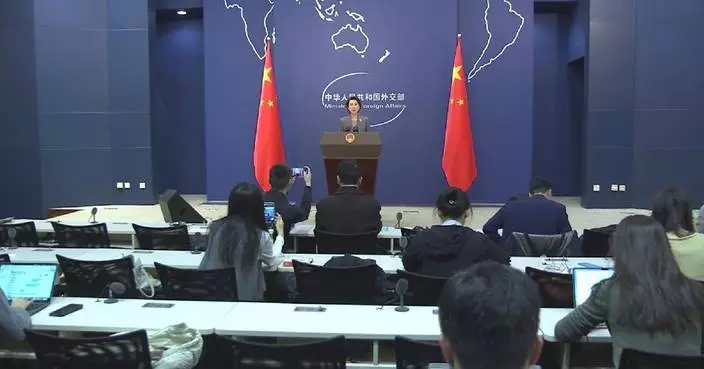
China to expand global access to innovation achievements: spokeswoman

Canadian PM arrives in Beijing for official visit

Hang Seng University of Hong Kong’s Institute of Knowledge Exchange Launches “Entrepreneurial CEO Certificate Course” to Cultivate Socially Responsible Business Leaders
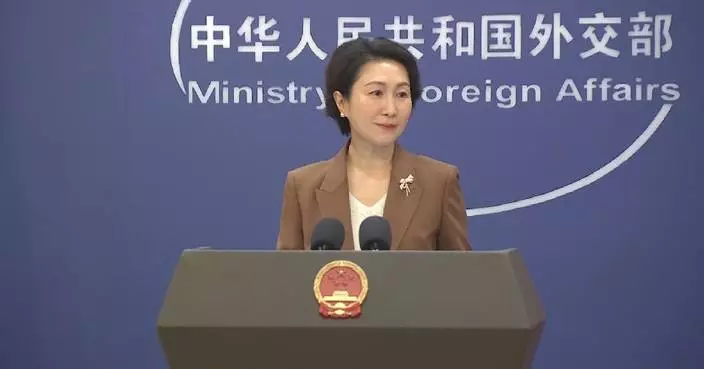
China ready to work with all parties to promote cooperation in polar regions: FM spokesperson

Restaurants see surge in bookings for Chinese New Year's Eve dinners
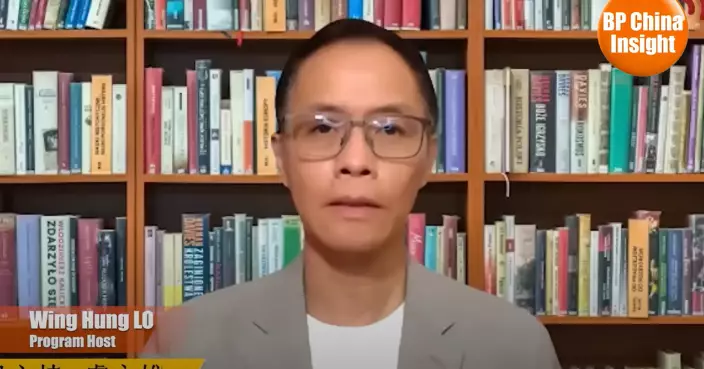
BP China Insight: US power shortage: considering using aircraft carrier to generate electricity

BP China Insight : Beijing Strikes Back at Meta's "Grab Tech and Talent" Acquisition

Proposals targeting immigration flood in following ICE shooting of Renee Good in Minneapolis

Chinese companies offer green solutions at World Future Energy Summit
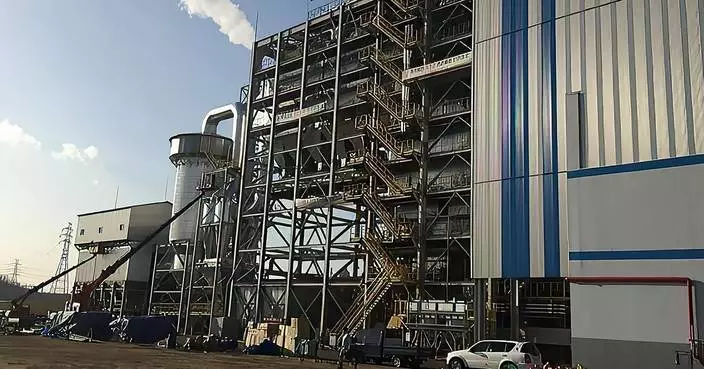
Gaw Capital Acquires Korea’s Leading Waste Management Firm Koentec as First Waste Management Infrastructure Investment
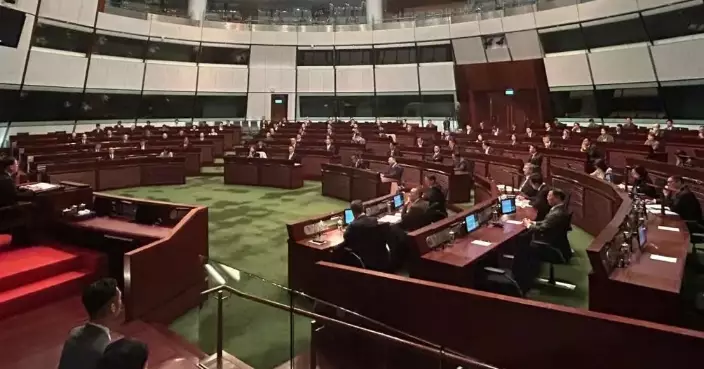
The New Legislative Council has Held its First Plenary Session, Focusing on the Issue of Post-Disaster Reconstruction of the Tai Po Fire
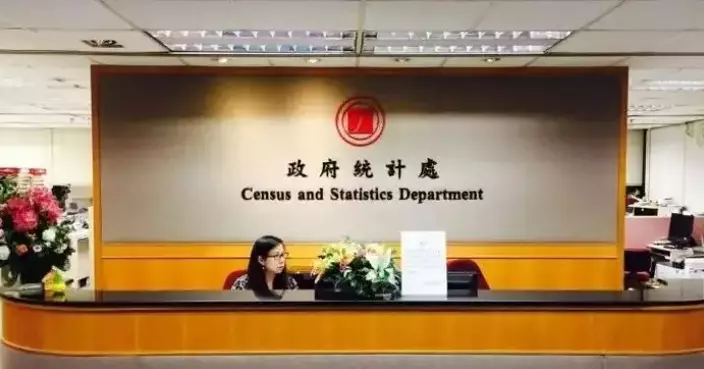
New Statistics Digest Reveals Marriage and Divorce Trends in Hong Kong, 1991-2024
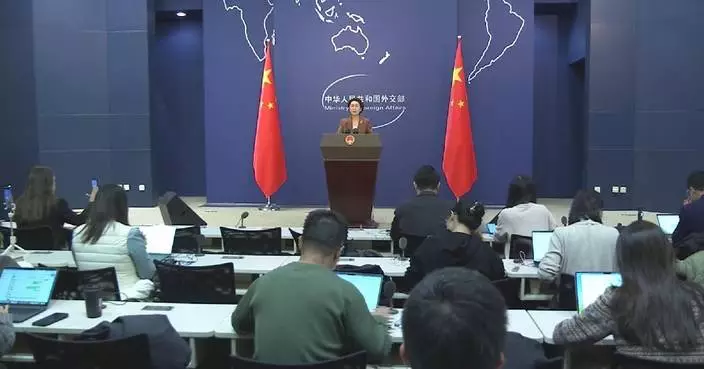
China, Canada both committed to advancing relations: spokeswoman

BNO Dream Crumbles: 60,000 Face the Door as UK Tightens the Screws

Hong Kong Economic Policy Green Paper 2026 by HKU Business School Focuses on New Opportunities for Hong Kong’s Economy

BP China Insight: US power shortage: considering using aircraft carrier to generate electricity

BP China Insight : Beijing Strikes Back at Meta's "Grab Tech and Talent" Acquisition

Proposals targeting immigration flood in following ICE shooting of Renee Good in Minneapolis
Chinese companies offer green solutions at World Future Energy Summit

BP China Insight: China's market becomes key — U.S. allies voting with their feet

China to expand global access to innovation achievements: spokeswoman
Canadian PM arrives in Beijing for official visit

Hang Seng University of Hong Kong’s Institute of Knowledge Exchange Launches “Entrepreneurial CEO Certificate Course” to Cultivate Socially Responsible Business Leaders
China ready to work with all parties to promote cooperation in polar regions: FM spokesperson
Restaurants see surge in bookings for Chinese New Year's Eve dinners

Gaw Capital Acquires Korea’s Leading Waste Management Firm Koentec as First Waste Management Infrastructure Investment

The New Legislative Council has Held its First Plenary Session, Focusing on the Issue of Post-Disaster Reconstruction of the Tai Po Fire

New Statistics Digest Reveals Marriage and Divorce Trends in Hong Kong, 1991-2024

China, Canada both committed to advancing relations: spokeswoman

BNO Dream Crumbles: 60,000 Face the Door as UK Tightens the Screws

Hong Kong Economic Policy Green Paper 2026 by HKU Business School Focuses on New Opportunities for Hong Kong’s Economy
Feature·Bloggers

【Deep Throat】Trump's Latest Iran Tariff Bluff: China Sees Right Through It

【Ariel】Jimmy Lai’s “Solitary” Twist: Judges Say He Asked For It

【What Say You?】Accomplice Witness Chen Zihao: Family Stalked, Fears Black Bloc Revenge After Release

【Deep Blue】International Laws? You Kidding Me?

【Bastille Commentary】Chicken-hearted Conservatives: Sanctioning Hong Kong Judges While Trump Runs Wild

【What Say You?】Trump’s “Maduro Grab” Gets a Glossy Spin by the Usual Suspects

Court ruling jeopardizes freedom for pro-Palestinian activist Mahmoud Khalil
- Remains of 32 Cuban officers killed during strike on Venezuela repatriated as US threat lingers
- Trump is meeting with Venezuelan opposition leader after cozying up to Maduro’s successor
- Judge hands offshore wind industry another victory against Trump in clearing way for NY project
- UK's Conservative Party leader sacks chief rival after apparent plot to defect
- European troops arrive in Greenland as talks with US highlight 'disagreement' over island's future
- Igloo Makes Valentine's Day Cooler With Two Special-Edition Collections to Crush On
- Brian Kemp survived Trump’s anger. Now he wants to shape Georgia’s future
- The Latest: UN Security Council to discuss Iran's deadly protests after US request
- Trump threatens to use the Insurrection Act to end protests in Minneapolis

China's aggregate social financing maintains high growth in 2025
- Canadian PM's visit to China paves way for more pragmatic trade ties: scholar
- China ready to work for steady, sound ties with Canada: FM
- U.S. tariffs plunge Lesotho's textile industry into crisis
- Venezuelan workers rally for Maduro's return
- Japanese PM's erroneous remarks on China's Taiwan undermine regional stability
- Palestinian death toll in Gaza rises to 71,439: health authorities
- Russia, Ukraine update battle reports
- Chinese, Iranian FMs have phone conversation
- China ready to work for steady, sound ties with Canada: FM

Goldman Sachs and Morgan Stanley see double-digit profit jumps amid surging stock market
- Aon's Resilience Quotient Cuts Through Uncertainty and Volatility to Help Businesses Move from Risk to Resilience and Growth
- US seizes sixth sanctioned tanker it says has ties to Venezuela in Trump's effort to control its oil
- MOVA Life brings its smart health home vision to Silicon Valley
- US sanctions Iranian officials accused of repressing protests against the government
- Iran closes its airspace to commercial aircraft for hours as tensions with US remain high
- 10 Years Since AlphaGo, Code Name: BlueSpot Disclosed Ahead of Handicap-Match Events
- GracoRoberts Acquires Sky Mart to Accelerate Latin American Expansion, Anchored by Miami Hub
- In a warming world, freshwater production is moving deep beneath the sea
- SECuRE trial to continue with no modifications to protocol following Safety Review Committee meeting

Ailing astronaut returns to Earth early in NASA's first medical evacuation
- Lawmakers propose $2.5B agency to boost production of rare earths and other critical minerals
- Aimed at the growing number of young Chinese who live alone, a new app asks: ‘Are you dead?'
- Wikipedia unveils new AI licensing deals as it marks 25th birthday
- Grok blocked from undressing images in places where it's illegal, X says
- NASA sends 4 astronauts back to Earth in first medical evacuation
- Public mistrust linked to drop in deceased donor organ donations and kidney transplants
- US overdose deaths fell through most of 2025, federal data reveals
- Free Starlink access for Iran seen as game changer for demonstrators getting their message out
- Barclays Research Finds Humanoid Robotics On Track to Become a $200 Billion Market by 2035

Min Jin Lee's 'Pachinko' follow-up, 'American Hagwon,' will explore Korean education obsession
- Actor Timothy Busfield ordered held without bond in New Mexico child sex abuse case
- Royal Opera sees generation change as Jakub Hrůša and Speranza Scappucci come in
- Julio Iglesias accused of sexual assault in Caribbean as Spanish prosecutors study the allegations
- Fanatics debuts Fanatics Studios with Olympics, Tom Brady and ESPN at Intuit Dome
- Warm up with creamy rutabaga, parsnip and cheddar soup
- Kim Gordon returns with defiant new solo album, 'Play Me': 'It does feel like an evolution'
- Serbians mark Orthodox Christian New Year according to old tradition
- At the NBR Awards, emotional speeches by Jafar Panahi and Ryan Coogler stir the room
- Japanese and South Korean leaders jam to K-pop hits at a summit

Clayton Kershaw not quite done pitching, will play for US in World Baseball Classic
- Brabec slows down deliberately to concede Dakar Rally bike lead and Al-Attiyah cruises
- Is Joel Embiid really back to All-Star form? 76ers proceed carefully as he avoids injury bug
- Olympic great Shaun White's next chapter: Shaping snowboarding from outside the halfpipe
- Inter Milan has 70% chance of Serie A title after becoming winter champion
- Skeleton athlete Katie Uhlaender's Olympic hopes take another hit as complaint dismissed
- McIlroy leads by one stroke after first round at Dubai Invitational
- Record-chasing Bayern faces Leipzig test in the Bundesliga
- Carrick has 17 games to convince Man United and the first two are daunting
- Norway coaches banned in ski jumping suit scandal verdicts ahead of Winter Olympics

Six illegal workers and an employer arrested in Hong Kong's anti-illegal worker operation Contribute.
- Tai Po Fire Identifies 168 Victims, Police Confirm No Unidentified Remains
- Health Officials from Mainland, Hong Kong, and Macao Meet to Discuss Medical Innovations and Public Health Strategies
- HKMA Warns Public About Recent Banking Scams and Fraudulent Websites
- HYAB Launches Youth Start-up Internship Programme 2026 for Young Innovators in Hong Kong
- Hong Kong Customs Seizes $4.2 Million in Drugs, Arrests 28-Year-Old Man in Yau Tong Operation
- Hong Kong Customs Seizes $7.3 Million in Counterfeit Luxury Goods, Arrests Two Shop Owners
- Hong Kong Reports No New Chikungunya Fever Cases; Ongoing Mosquito Control Efforts Continue
- Passenger Sentenced to Three Months for Smuggling $21,000 in Duty-Not-Paid Cigarettes
- Hong Kong's Merchandise Trade Volumes Surge in November 2025, Exports Up 15.4% and Imports Up 15.1%

China's top legislator meets Canadian PM
- China willing to strengthen cooperation with Canada: premier
- China has no need or intent to use currency depreciation for trade advantage: central bank
- China's foreign trade promises further growth in 2026
- National online shopping event to be launched for Spring Festival
- China cuts interest rates on structural monetary policy tools by 0.25 percentage points
- Japanese people rally against PM's erroneous remarks, military expansion
- China, Canada have huge cooperation potential in economic, trade fields: commerce ministry
- US intentions in Greenland violates Int'l law, targets oil: Spanish expert
- China's new round of trade-in subsidy program drives consumer goods sales
Category · News

Court ruling jeopardizes freedom for pro-Palestinian activist Mahmoud Khalil

Remains of 32 Cuban officers killed during strike on Venezuela repatriated as US threat lingers

Trump is meeting with Venezuelan opposition leader after cozying up to Maduro’s successor

Clayton Kershaw not quite done pitching, will play for US in World Baseball Classic

Goldman Sachs and Morgan Stanley see double-digit profit jumps amid surging stock market

Judge hands offshore wind industry another victory against Trump in clearing way for NY project

UK's Conservative Party leader sacks chief rival after apparent plot to defect

European troops arrive in Greenland as talks with US highlight 'disagreement' over island's future

Igloo Makes Valentine's Day Cooler With Two Special-Edition Collections to Crush On

Aon's Resilience Quotient Cuts Through Uncertainty and Volatility to Help Businesses Move from Risk to Resilience and Growth

Brian Kemp survived Trump’s anger. Now he wants to shape Georgia’s future

The Latest: UN Security Council to discuss Iran's deadly protests after US request
China's aggregate social financing maintains high growth in 2025

Trump threatens to use the Insurrection Act to end protests in Minneapolis

US seizes sixth sanctioned tanker it says has ties to Venezuela in Trump's effort to control its oil

Venezuela’s new leader faces competing pressures from the US and a government loyal to Maduro

83-year-old man convicted of killing Uber driver who he wrongly thought was scamming him

Democrats hope a blue wave washes over Wisconsin and gives them total control of battleground state

MOVA Life brings its smart health home vision to Silicon Valley

Uganda’s presidential election experiences hours of delays at some polling stations

Mouser Electronics New Product Insider: Over 40,000 New Parts Added in 2025

US sanctions Iranian officials accused of repressing protests against the government

Keysight Unveils Machine Learning Toolkit to Accelerate Device Modeling and PDK Development

Altitude Marketing Releases 2026 CDMO Marketing Trends Report, Highlighting Shifts in Growth Strategy, Channel Performance, AI Adoption

Live updates: Trump threatens to use the Insurrection Act in Minneapolis
Canadian PM's visit to China paves way for more pragmatic trade ties: scholar

Brabec slows down deliberately to concede Dakar Rally bike lead and Al-Attiyah cruises

Is Joel Embiid really back to All-Star form? 76ers proceed carefully as he avoids injury bug

Pope meets families of young Italian victims of the Swiss Alps bar fire

Olympic great Shaun White's next chapter: Shaping snowboarding from outside the halfpipe

Toronto schools closed and commuters face delays as heavy snow blankets southern Ontario

Iran closes its airspace to commercial aircraft for hours as tensions with US remain high

Inter Milan has 70% chance of Serie A title after becoming winter champion

ITC Infotech Unveils Digital & AI Engineering Hub in Riyadh, Deepens Commitment to the Middle East Region.

10 Years Since AlphaGo, Code Name: BlueSpot Disclosed Ahead of Handicap-Match Events

Control of the House is at the center of midterms. These charts help explain the fight
China ready to work for steady, sound ties with Canada: FM

Skeleton athlete Katie Uhlaender's Olympic hopes take another hit as complaint dismissed

GracoRoberts Acquires Sky Mart to Accelerate Latin American Expansion, Anchored by Miami Hub

Photos show voters going to the polls in Uganda's presidential election
U.S. tariffs plunge Lesotho's textile industry into crisis

Google Founding Board Member Ram Shriram Joins GridCARE Board of Directors

France's Macron laughs off 'harmless' eye condition as he addresses troops
Venezuelan workers rally for Maduro's return

What's next for Greenland and Denmark after difficult meeting with Trump administration

In a warming world, freshwater production is moving deep beneath the sea

Netanyahu says the announced start of Gaza ceasefire's next phase is a 'declarative move'

SECuRE trial to continue with no modifications to protocol following Safety Review Committee meeting
Japanese PM's erroneous remarks on China's Taiwan undermine regional stability

10% of US House members have announced they're not running for reelection, an AP analysis shows

ESTsoft and Samsung Electronics Unveil 'AI Promoter' at CES 2026, Delivering an Innovative Exhibition Experience

Massimo Group to Debut Second-Generation MVR HVAC Pro Series at 2026 PGA Show

PhotonPay Expands UK Local Payment Rails via New Collaboration with ClearBank

Never mow lawns or clean pools the same again: MOVA showcases M∞VA Universe integrated smart outdoor technologies in Silicon Valley

Just 198,000 Americans filed jobless claims last week, fewer than expected as layoffs remain low

McIlroy leads by one stroke after first round at Dubai Invitational

Vetter Reaches Key Launch Milestones for the V-OVS® next Tamper-Evident Syringe Closure System

Turkish Airlines flight makes emergency landing in Barcelona after 'threat' alert

Niagen Bioscience Expands HSA/FSA Access for Tru Niagen®, the Leading NAD+ Supplement in the U.S.*

DDC Enterprise Acquires 200 BTC, Marking Its First Bitcoin Purchase of 2026

Skillsoft Appoints Bernard Barbour as Chief Technology and Product Officer
Palestinian death toll in Gaza rises to 71,439: health authorities

Rachel Goldberg-Polin's memoir recounts her journey after her son's abduction by Hamas

Senators launch a cross-party effort to end stock trading by lawmakers

ON.energy Deploys Medium Voltage AI UPS for Grid-Safe AI Campuses at National Laboratory of the Rockies
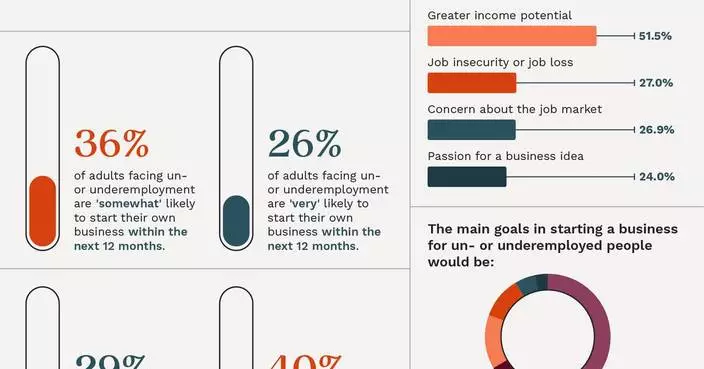
New Survey from LegalZoom Reveals Rising Interest in Entrepreneurship Among Underemployed Adults as Economic Uncertainty Reshapes Career Priorities

QPS Selects Oracle Argus Safety Database to Enhance Pharmacovigilance in Clinical Trials

ANTECH™ Academy Celebrates 20 Years of Advancing Continuous Veterinary Education in Europe
Russia, Ukraine update battle reports

Mantle Expands Global DeFi Access through Infinex Integration

New England Donor Services Announces Record Number of Life-Saving Organ Transplants in 2025

Envision Launches Dubhe, Shaping the AI Energy System with the World's First Energy Foundation Model

Ailing astronaut returns to Earth early in NASA's first medical evacuation
Chinese, Iranian FMs have phone conversation
China ready to work for steady, sound ties with Canada: FM

Hilton Introduces Apartment Collection by Hilton: Furnished Apartment Accommodations, Hosted by Hilton

Lawmakers propose $2.5B agency to boost production of rare earths and other critical minerals

What Americans think about Trump's first year back in office, according to AP-NORC polling

Accenture Named a Leader in Gartner® Magic Quadrant™ for Digital Technology and Business Consulting Services

Record-chasing Bayern faces Leipzig test in the Bundesliga

Carrick has 17 games to convince Man United and the first two are daunting

Rights group warns on failure to deliver justice after sectarian killings in Syria's Sweida
China's top legislator meets Canadian PM
China willing to strengthen cooperation with Canada: premier








































